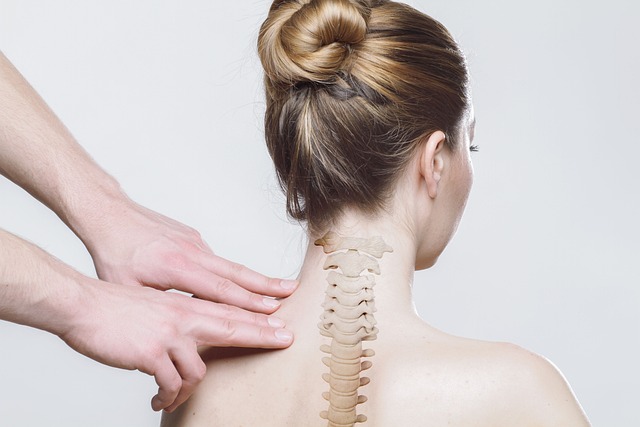7 Effective Natural Remedies to Treat Spinal Stenosis
Spinal stenosis, a condition characterized by the narrowing of spaces within the spine, can cause significant discomfort and impact daily life. While medical interventions are often necessary, many individuals seek natural remedies to alleviate symptoms and improve their quality of life. This article explores seven effective natural treatments for spinal stenosis, offering insights into holistic approaches that complement conventional care.

What is spinal stenosis and how does it affect the body?
Spinal stenosis occurs when the spaces within the spine narrow, potentially putting pressure on the nerves that travel through the spine. This condition most commonly affects the lower back and neck. Symptoms can include pain, numbness, muscle weakness, and in severe cases, problems with bladder or bowel function. The narrowing can be caused by various factors, including age-related changes, herniated disks, overgrowth of bone, thickened ligaments, or injuries.
Which natural remedies can help alleviate spinal stenosis pain?
-
Exercise and Physical Therapy: Targeted exercises can strengthen the muscles supporting the spine, improve flexibility, and enhance overall posture. Low-impact activities like swimming, cycling, or walking can be particularly beneficial.
-
Acupuncture: This traditional Chinese medicine technique involves inserting thin needles into specific points on the body. Some patients report reduced pain and improved function after acupuncture sessions.
-
Chiropractic Care: Spinal adjustments performed by a qualified chiropractor may help relieve pressure on nerves and improve spinal alignment.
-
Yoga and Stretching: Gentle yoga poses and stretching exercises can improve flexibility, reduce stiffness, and potentially alleviate pain associated with spinal stenosis.
-
Heat and Cold Therapy: Alternating between heat and cold applications can help reduce inflammation and provide pain relief. Heat can relax muscles, while cold can numb pain and reduce swelling.
-
Anti-inflammatory Diet: Consuming foods rich in omega-3 fatty acids, antioxidants, and other anti-inflammatory compounds may help reduce inflammation throughout the body, potentially easing spinal stenosis symptoms.
-
Herbal Supplements: Some herbs like turmeric, devil’s claw, and white willow bark have anti-inflammatory properties that might help manage pain. However, it’s crucial to consult with a healthcare provider before starting any supplement regimen.
How can lifestyle modifications complement natural remedies?
In addition to specific natural treatments, lifestyle modifications can play a crucial role in managing spinal stenosis. Maintaining a healthy weight reduces stress on the spine. Good posture, both while sitting and standing, can help alleviate pressure on the affected areas. Ergonomic adjustments at work and home, such as using supportive chairs or adjusting computer screen heights, can also contribute to symptom management.
What role does stress reduction play in managing spinal stenosis?
Stress reduction techniques can be valuable in managing spinal stenosis symptoms. Chronic stress can exacerbate pain and inflammation throughout the body, including in the spine. Practices like meditation, deep breathing exercises, and progressive muscle relaxation can help reduce overall stress levels. These techniques may not only help manage pain but also improve sleep quality, which is often disrupted in individuals with spinal stenosis.
Are there any specific exercises recommended for spinal stenosis?
While exercise is beneficial, certain types are particularly recommended for individuals with spinal stenosis. Flexion exercises, which involve bending forward, can help create space in the spinal canal and potentially relieve pressure on nerves. Examples include knee-to-chest stretches, pelvic tilts, and seated forward bends. Core-strengthening exercises, such as planks or modified crunches, can also be helpful in providing better support for the spine.
When should you consult a doctor for spinal stenosis treatment?
While natural remedies can be effective in managing symptoms, it’s crucial to know when to seek medical attention. Consult a healthcare provider if you experience:
-
Severe or worsening pain that doesn’t respond to conservative treatments
-
Numbness, weakness, or tingling in your arms or legs
-
Loss of bladder or bowel control
-
Difficulty walking or maintaining balance
-
Any sudden changes in symptoms or new neurological signs
A doctor can provide a comprehensive evaluation, potentially including imaging studies, to determine the severity of the stenosis and recommend appropriate treatments. This may include more aggressive interventions such as physical therapy, medication, or in some cases, surgical options.
In conclusion, natural remedies can play a significant role in managing spinal stenosis symptoms and improving quality of life. However, it’s important to approach these treatments as part of a comprehensive care plan, ideally under the guidance of healthcare professionals. By combining natural remedies with appropriate medical care and lifestyle modifications, many individuals with spinal stenosis can find relief and maintain an active, fulfilling life.
This article is for informational purposes only and should not be considered medical advice. Please consult a qualified healthcare professional for personalized guidance and treatment.




